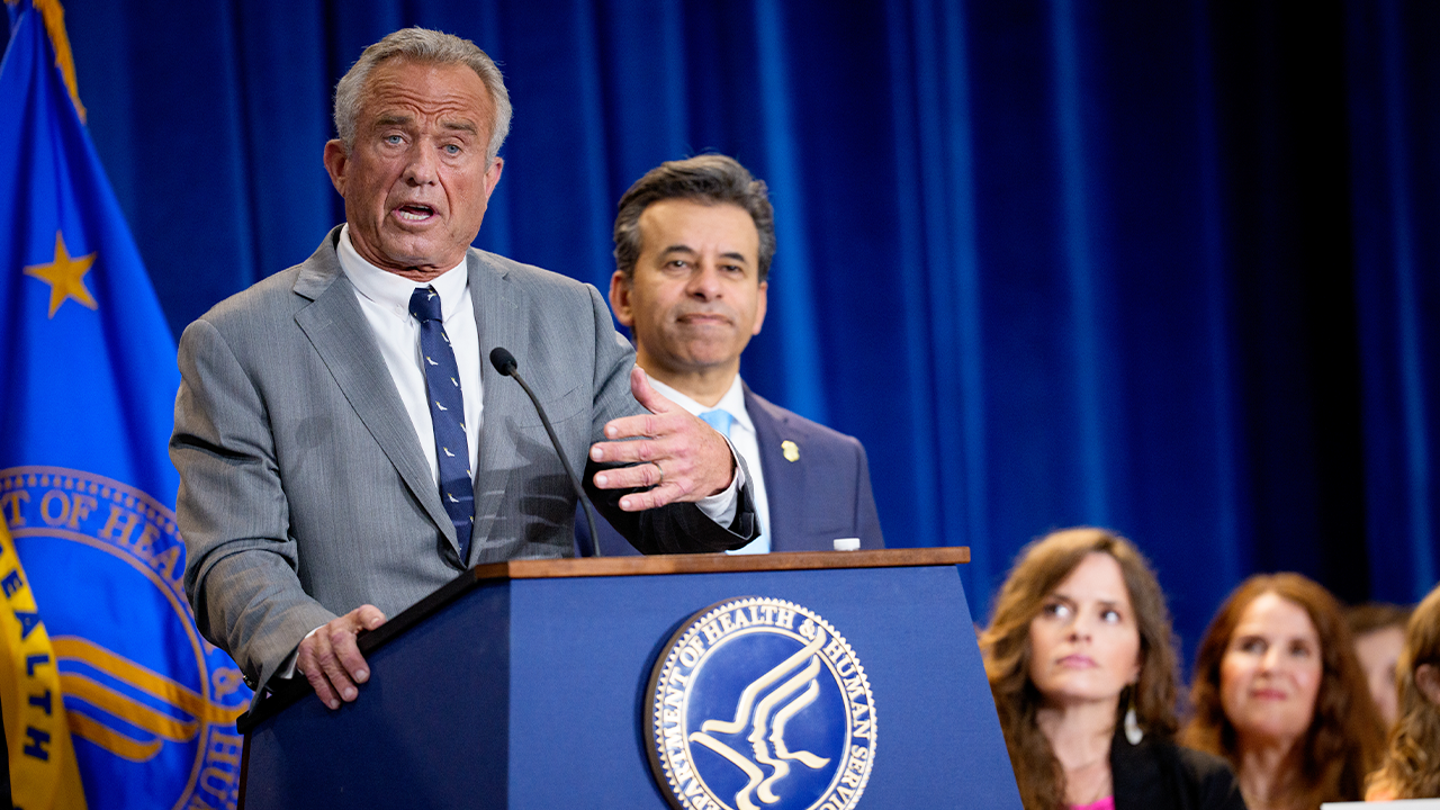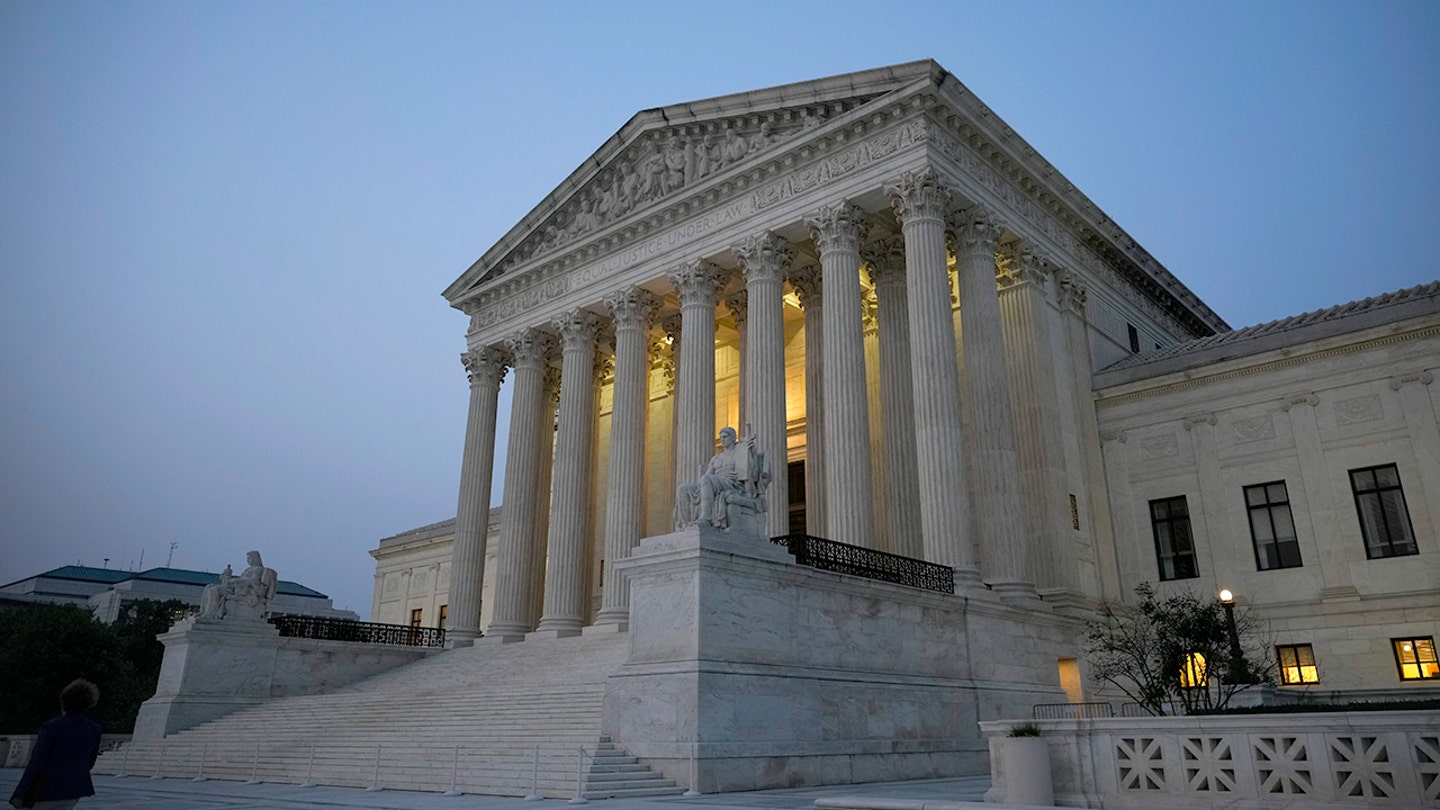
Trump's week shaped by crime agenda, potential guard deployment to Chicago
Entities mentioned:
- Donald Trump: Power, Control, Influence
- Pam Bondi: Duty, Justice, Professional pride
- Brandon Johnson: Self-preservation, Righteousness, Indignation
- J.B. Pritzker: Duty, Self-preservation, Wariness
- Wes Moore: Duty, Security, Cooperation
- Muriel Bowser: Duty, Security, Self-preservation
Article Assessment:
Credibility Score: 70/100
Bias Rating: 55/100 (Center)
Sentiment Score: 35/100
Authoritarianism Risk: 65/100 (Authoritarian Tendencies)
Bias Analysis:
The article presents multiple viewpoints, including Trump's statements and responses from Democratic leaders. While it leans slightly towards critiquing Trump's approach, it maintains a relatively balanced presentation of facts and perspectives.
Key metric: Crime Rate in Major Cities
As a social scientist, I analyze that this article highlights President Trump's focus on crime reduction in major U.S. cities, particularly Chicago and Washington D.C., through the potential deployment of National Guard troops and increased federal law enforcement presence. This approach reflects a centralized, federal-level intervention in local matters, which could impact crime rates but also raises concerns about federal overreach and political motivations. The President's rhetoric and actions suggest a belief that forceful intervention can quickly reduce crime, but this approach may overlook complex socio-economic factors contributing to urban crime. The resistance from local Democratic leaders indicates a political divide in approaches to public safety and federalism. This conflict could affect the implementation and effectiveness of crime reduction strategies, potentially impacting the key metric of crime rates in major cities.

Trump’s more conventional judicial nominees could give Alito and Thomas greater confidence to retire
Entities mentioned:
- Donald Trump: Power, Control, Legacy
- Federalist Society: Influence, Righteousness, Legacy
- Emil Bove: Loyalty, Ambition, Influence
- Wall Street Journal editorial page: Influence, Wariness, Professional pride
- Clarence Thomas: Legacy, Duty, Righteousness
- Samuel Alito: Legacy, Duty, Righteousness
- Stephen Kenny: Professional pride, Loyalty, Influence
- Mike Davis: Influence, Ambition, Righteousness
Article Assessment:
Credibility Score: 75/100
Bias Rating: 55/100 (Center)
Sentiment Score: 50/100
Authoritarianism Risk: 45/100 (Mixed/Neutral)
Bias Analysis:
The article presents multiple perspectives and includes critiques of Trump's approach, suggesting an attempt at balance. However, it predominantly features conservative voices and focuses on conservative strategy, indicating a slight center-right lean.
Key metric: Judicial Appointment Efficacy
As a social scientist, I analyze that this article highlights the complex interplay between political power, judicial appointments, and conservative legal ideology in the United States. Trump's second-term judicial nominations show a return to more conventional conservative picks after initial departures, potentially to encourage retirements of older conservative justices. This strategy aims to solidify a long-term conservative judicial legacy, impacting crucial social and political issues for decades. The article reveals tensions within conservative legal circles and the ongoing influence of the Federalist Society, despite Trump's public criticism. The focus on younger nominees and the emphasis on loyalty suggests a calculated approach to reshape the judiciary, with significant implications for the balance of power and interpretation of law in the U.S.

GOP governors are sending troops to DC. Their states have 10 cities with higher crime rates
Entities mentioned:
- Republican Governors: Loyalty, Political ambition, Influence
- President Donald Trump: Power, Control, Legacy
- DC Mayor Muriel Bowser: Duty, Security, Professional pride
- Democratic lawmakers and activists: Moral outrage, Justice, Righteousness
- Sen. Thom Tillis: Criticism, Duty, Wariness
Article Assessment:
Credibility Score: 75/100
Bias Rating: 40/100 (Lean Left)
Sentiment Score: 35/100
Authoritarianism Risk: 55/100 (Mixed/Neutral)
Bias Analysis:
The article leans slightly left, evidenced by its critical stance towards Republican governors and Trump's actions. It provides contrasting viewpoints but gives more space to critics of the troop deployments.
Key metric: Violent Crime Rate
As a social scientist, I analyze that this article highlights the complex interplay between federal and state politics, crime statistics, and resource allocation. The deployment of National Guard troops to Washington, DC by Republican governors, despite their own states having cities with higher crime rates, suggests political motivations rather than a genuine focus on addressing crime. This action may be seen as an attempt to support President Trump's agenda and gain political favor, rather than addressing local crime issues. The article raises questions about the effectiveness of such deployments in reducing crime and the potential negative impacts on the communities these troops are leaving behind. It also underscores the importance of data-driven policy-making and the need for a more nuanced approach to addressing crime that goes beyond simply increasing law enforcement presence.

READ: Transcript of the Justice Department’s interview with Ghislaine Maxwell
Entities mentioned:
- Department of Justice: Justice, Duty, Transparency
- Todd Blanche: Professional pride, Duty, Curiosity
- Ghislaine Maxwell: Self-preservation, Obligation, Wariness
- Jeffrey Epstein: Power, Greed, Control
- Donald Trump: Power, Influence, Recognition
Article Assessment:
Credibility Score: 75/100
Bias Rating: 50/100 (Center)
Sentiment Score: 45/100
Authoritarianism Risk: 25/100 (Generally Democratic)
Bias Analysis:
The article presents factual information without apparent partisan slant. It neutrally reports on the release of the transcript and the circumstances surrounding the interview, avoiding inflammatory language or political commentary.
Key metric: Public Trust in Government Institutions
As a social scientist, I analyze that this release of the interview transcript with Ghislaine Maxwell by the Department of Justice is likely to have a significant impact on public trust in government institutions. The transparency shown by releasing this document may help to improve public perception of the DOJ's commitment to accountability. However, the limited immunity granted to Maxwell and her subsequent transfer to a minimum-security prison may be viewed skeptically by some, potentially undermining trust. The involvement of a former Trump lawyer in the interview adds a political dimension that could further complicate public perception, depending on how it's interpreted across the political spectrum.

‘Militarization of politics’: How bucolic Bethesda woke up to FBI search on John Bolton
Entities mentioned:
- John Bolton: Self-preservation, Justice, Professional pride
- Donald Trump: Power, Control, Revenge
- FBI: Duty, Justice, Professional pride
- Robert Hill: Curiosity, Indignation, Moral outrage
- George Conway: Moral outrage, Influence, Recognition
- Bethesda residents: Curiosity, Anxiety, Wariness
Article Assessment:
Credibility Score: 70/100
Bias Rating: 55/100 (Center)
Sentiment Score: 30/100
Authoritarianism Risk: 65/100 (Authoritarian Tendencies)
Bias Analysis:
The article presents multiple perspectives, including those critical of the search and Trump administration. However, it gives more space to voices opposing the search, potentially skewing reader perception.
Key metric: Public Trust in Government Institutions
As a social scientist, I analyze that this event significantly impacts public trust in government institutions. The FBI's search of a former high-ranking official's residence, especially one who has been critical of the current administration, raises concerns about potential political motivations behind law enforcement actions. This incident, occurring in an affluent suburb known for housing political elites, brings the abstract concept of political conflict into a tangible, local context for many observers. The varied reactions from residents, ranging from curiosity to outrage, reflect a broader societal divide in perceptions of government actions. The removal of Bolton's security detail earlier, despite known threats, further complicates the public's understanding of government priorities and protection of former officials. This event may lead to increased skepticism about the impartiality of law enforcement agencies and heighten concerns about the potential weaponization of government institutions for political purposes.

Trump-aligned legal group probes Biden-era organ transplant program over ethical concerns
Entities mentioned:
- America First Legal: Justice, Righteousness, Wariness
- Stephen Miller: Loyalty, Influence, Control
- Department of Health and Human Services: Duty, Professional pride, Security
- Centers for Medicare & Medicaid Services: Duty, Professional pride, Security
- Health Resources and Services Administration: Duty, Professional pride, Security
- Robert F. Kennedy Jr.: Righteousness, Moral outrage, Recognition
- Laura Stell: Justice, Righteousness, Professional pride
- Trump administration: Power, Control, Influence
Article Assessment:
Credibility Score: 70/100
Bias Rating: 65/100 (Lean Right)
Sentiment Score: 35/100
Authoritarianism Risk: 40/100 (Generally Democratic)
Bias Analysis:
The article leans right due to its focus on Trump-aligned groups and their concerns, as well as the 'FIRST ON FOX' label. While it presents some factual information about the organ transplant program, it gives more weight to criticisms from Trump-aligned sources.
Key metric: Healthcare System Effectiveness
As a social scientist, I analyze that this article highlights a conflict between the Biden administration's efforts to improve organ transplant access and concerns raised by Trump-aligned groups about potential ethical issues and outside influences. The investigation by America First Legal into the Increasing Organ Transplant Access Model reflects ongoing political tensions in healthcare policy. This situation could impact the Healthcare System Effectiveness metric by potentially delaying or altering the implementation of a program designed to increase organ transplant access. The controversy may lead to increased scrutiny of healthcare policies, which could either improve transparency and effectiveness or create obstacles to implementing potentially beneficial reforms. The political nature of the investigation also underscores the challenges of implementing major healthcare changes in a polarized environment.

'Maine's Mamdani': Maine GOP chief issues warning about new challenger looking to oust Susan Collins
Entities mentioned:
- Susan Collins: Self-preservation, Loyalty, Influence
- Graham Platner: Ambition, Justice, Influence
- Jason Savage: Competitive spirit, Wariness, Control
- Maine Republican Party: Power, Control, Self-preservation
- Democratic Party: Power, Control, Unity
- Zohran Mamdani: Influence, Justice, Recognition
- Janet Mills: Ambition, Influence, Duty
Article Assessment:
Credibility Score: 65/100
Bias Rating: 75/100 (Lean Right)
Sentiment Score: 35/100
Authoritarianism Risk: 40/100 (Generally Democratic)
Bias Analysis:
The article leans right, primarily quoting Republican sources and framing progressive Democrats negatively. It presents a one-sided view of the political landscape, emphasizing potential threats from left-wing candidates without balanced perspectives.
Key metric: Political Polarization Index
As a social scientist, I analyze that this article highlights the growing ideological divide within the Democratic Party and between Democrats and Republicans. The framing of Graham Platner as 'Maine's Mamdani' suggests an attempt to associate him with more radical left-wing politics, potentially alienating moderate voters. This polarization could impact voter turnout and party unity, ultimately affecting the balance of power in the Senate. The article's focus on ideological extremes and the characterization of progressive policies as 'very unpopular' indicates a potential shift in political discourse towards more polarized positions, which could have long-term effects on bipartisanship and governance.

Trump administration wins Supreme Court fight to slash NIH medical research grants tied to DEI, LGBTQ studies
Entities mentioned:
- Trump administration: Power, Control, Righteousness
- Supreme Court: Duty, Justice, Influence
- National Institutes of Health (NIH): Professional pride, Duty, Obligation
- Judge Angel Kelley: Justice, Duty, Moral outrage
- Justice Department: Duty, Loyalty, Control
- American Public Health Association: Moral outrage, Professional pride, Righteousness
- Democrat-led states: Moral outrage, Justice, Competitive spirit
- Association of American Universities: Professional pride, Wariness, Freedom
Article Assessment:
Credibility Score: 75/100
Bias Rating: 55/100 (Center)
Sentiment Score: 30/100
Authoritarianism Risk: 65/100 (Authoritarian Tendencies)
Bias Analysis:
The article presents multiple viewpoints, including those of the administration, opponents, and neutral parties like news outlets. However, there's slightly more space given to concerns about the cuts, which could suggest a slight lean towards the opposition's perspective.
Key metric: Federal Research Funding
As a social scientist, I analyze that this Supreme Court decision significantly impacts federal research funding, particularly in areas related to diversity, equity, inclusion, and LGBTQ studies. The ruling allows the Trump administration to cut $783 million in NIH grants, which could have far-reaching effects on biomedical research and scientific progress. This decision reflects a broader ideological conflict over the role of DEI initiatives in government-funded research. The potential chilling effect on research into politically sensitive topics could alter the landscape of scientific inquiry in the US, possibly slowing advancements in critical areas like cancer and Alzheimer's research. The split decision (5-4) also highlights the political divisiveness of the issue and the significant role the Supreme Court plays in shaping research priorities and funding allocation.

Jackson scathing dissent levels partisan charge at colleagues after high-profile ruling
Entities mentioned:
- Justice Ketanji Brown Jackson: Justice, Moral outrage, Righteousness
- Supreme Court: Power, Control, Influence
- Trump administration: Control, Power, Influence
- National Institutes of Health (NIH): Control, Power, Influence
- Chief Justice John Roberts: Duty, Influence, Wariness
- Justice Amy Coney Barrett: Justice, Duty, Professional pride
- Jonathan Turley: Analysis, Influence, Professional pride
Article Assessment:
Credibility Score: 75/100
Bias Rating: 45/100 (Center)
Sentiment Score: 35/100
Authoritarianism Risk: 40/100 (Generally Democratic)
Bias Analysis:
The article presents multiple perspectives, including dissenting opinions, which contributes to a balanced view. However, there is slightly more focus on Justice Jackson's criticisms, which may subtly lean the article left.
Key metric: Judicial Independence
As a social scientist, I analyze that this article highlights growing tensions within the Supreme Court, particularly regarding the court's handling of cases related to the Trump administration. Justice Jackson's dissent suggests a perception of bias towards the executive branch, which could impact public trust in the judiciary. The article also points to a potential shift in the court's decision-making process, with an increased use of the 'shadow docket' for significant rulings. This development may have long-term implications for the transparency and deliberative nature of the judicial process. The disagreements among justices, especially between Jackson and Barrett, indicate ideological divisions that could affect the court's ability to reach consensus on critical issues. The cancellation of NIH grants related to diversity, equity, and inclusion research may have broader societal impacts, potentially influencing future policy directions and research priorities in these areas.

James Comer praises Kash Patel for 'holding deep state accountable' as FBI raids John Bolton's home
Entities mentioned:
- James Comer: Righteousness, Justice, Loyalty
- Kash Patel: Justice, Determination, Professional pride
- John Bolton: Self-preservation, Loyalty, Professional pride
- FBI: Duty, Justice, Control
- Rick Crawford: Duty, Wariness, Professional pride
- Rand Paul: Justice, Indignation, Freedom
- Donald Trump: Power, Control, Revenge
Article Assessment:
Credibility Score: 65/100
Bias Rating: 70/100 (Lean Right)
Sentiment Score: 35/100
Authoritarianism Risk: 55/100 (Mixed/Neutral)
Bias Analysis:
The article leans right, evidenced by the prominence given to Republican voices and the uncritical presentation of 'deep state' narratives. While it includes some balancing information, the overall framing favors a conservative perspective on government accountability.
Key metric: Government Accountability and Transparency
As a social scientist, I analyze that this article highlights increasing tensions between different factions within the US government, particularly regarding the concept of the 'deep state' and the handling of classified information. The raid on John Bolton's property, a former high-ranking official, signifies a heightened focus on potential mishandling of sensitive documents. This event, coupled with the rhetoric from Republican officials, suggests a growing push for what they perceive as accountability within government institutions. However, the partisan nature of the comments and the invocation of the 'deep state' narrative indicate a deepening political divide that could impact public trust in government institutions and processes. The situation also underscores the ongoing influence of Trump-era politics in current governmental operations and investigations.